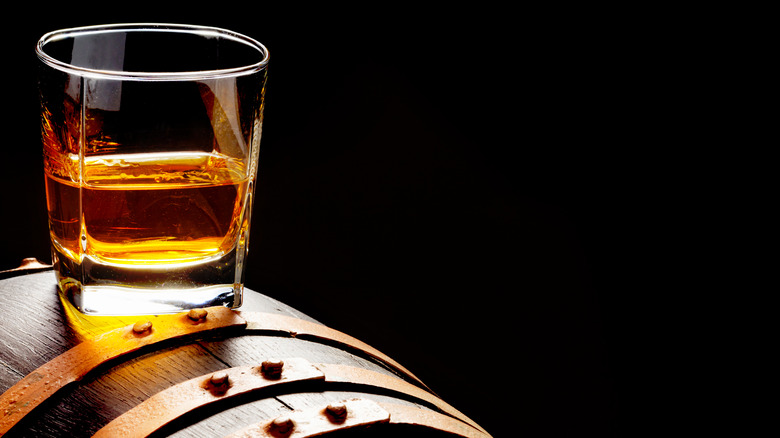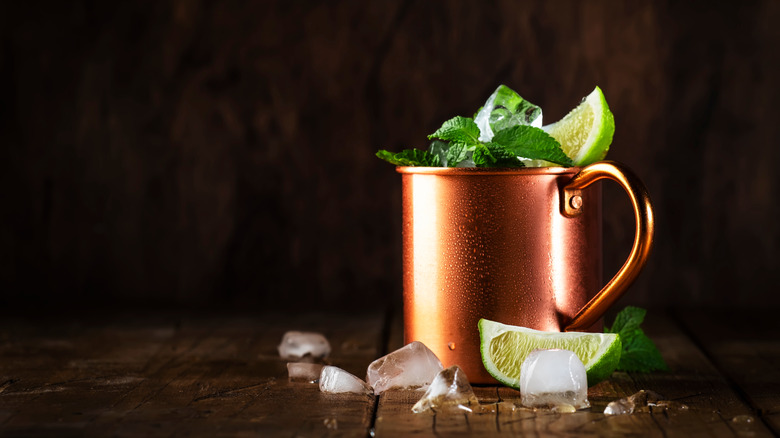How New Cocktail Guide Black Mixcellence Honors Black And Brown Mixologists
Writer Tamika Hall, along with celebrated mixologist and co-host of "Cocktail Kings" on Discovery-TV, Colin Asare-Appiah, just released their book "Black Mixcellence: A Comprehensive Guide to Black Mixology." The new cocktail guide offers a definitive history and a celebration of Black and brown excellence in the spirits industry. Hall tells Today that Black bartenders turned cocktail crafting into a calling, saying, "We broke barriers, dodged obstacles, hopped over pitfalls where we were expected to fail — and in regular true Black people fashion, we rose to the occasion."
The Bitter Southerner points out that Black mixologists have an extensive history in the U.S., going back to colonial times. Following the American revolution, free Blacks were allowed to saloon-keep, one of the few jobs open to them. Black-owned bars opened in Black enclaves. In 1898, a cadre of D.C. bartenders formed the "Colored Mixologists Club," an exclusive community of bartenders that celebrated the spirits craft, according to Happy Hour City. The website explains that bartending was one of the few careers that gave Black workers financial mobility.
Black Mixcellence pays homage to trailblazers
Hall, with Asare-Appiah, mines this rich history for "Black Mixcellence." Cuisine Noir writes that Hall chronicled the history while Asare-Appiah searched across the world for the recipes — many of which were not written down but passed on via word of mouth — creating a book that weaves its narrative around the mixology. From the dark history of rum production, built on the backs of slaves, to the story of whiskey distiller Nathan "Nearest" Green, who created the whiskey recipe that launched Jack Daniels. The book also includes stories and recipes from contemporary Black mixologists who are concocting inspired spirts in bars across the world, so those aren't lost to history.
Today cites the dispiriting statistic that just 7.8% of the spirits' industry's employees are Black, with only 2% holding executive positions. Hall, who previously worked as a content writer for alcohol companies like Bacardi and Maker's Mark, saw this underrepresentation first hand, which she said served as her inspiration to craft this book.
"It was important for me to provide a place to document some things that the mixologists did just so that people can reference them, see the work, see the creativity, the cocktail and the stories behind the cocktails," Hall tells Today. "[T]hat was the main part for me, aside from setting up a little bit of history ... opening a door for Black and brown modern-day mixologists."

